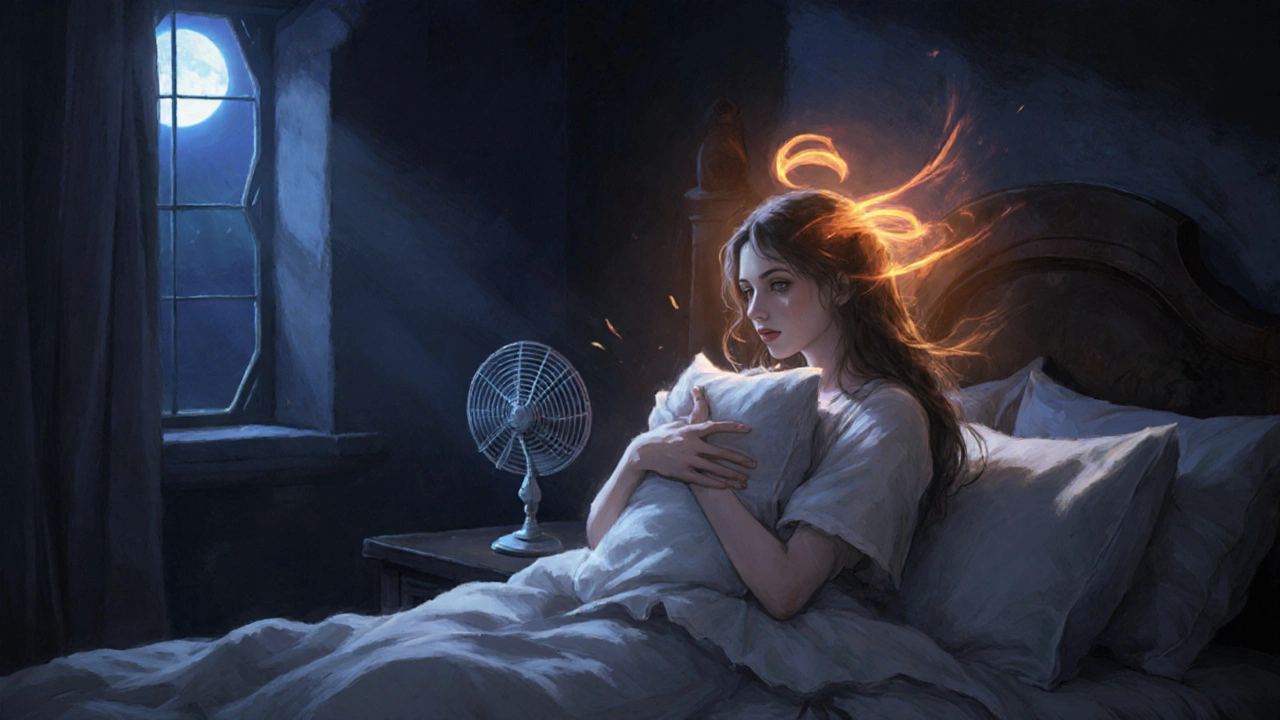Menopause Insomnia: Causes, Relief, and What Actually Works
When menopause insomnia, the persistent trouble falling or staying asleep during menopause, often linked to hormonal shifts and night sweats. Also known as hormonal sleep disruption, it’s not just being tired—it’s your body’s rhythm breaking down when estrogen drops. This isn’t a minor annoyance. It’s a full-on disruption that leaves you drained, irritable, and wondering if you’ll ever sleep through the night again.
It’s not just about hot flashes, though those are a big part of it. When estrogen falls, it affects your brain’s ability to regulate body temperature and sleep cycles. That’s why you wake up drenched at 3 a.m., heart racing, and then can’t fall back asleep. Progesterone, a natural sleep-promoting hormone, also dips during menopause. So your body loses two key allies in the fight for rest. And it’s not just physical—mood swings, anxiety, and stress from life changes during this transition make it harder to quiet your mind. This isn’t something you can just ‘power through.’ It’s biology, and it needs a smart response.
What helps? Some women find relief with simple lifestyle tweaks: cooler rooms, avoiding caffeine after noon, or a light walk before bed. Others need more targeted support—like magnesium, black cohosh, or low-dose hormone therapy, which studies show can improve sleep quality in many cases. Don’t assume you have to suffer. There are real, evidence-backed ways to get your sleep back, and you’re not broken for needing them.
The posts below cover what actually works for women dealing with menopause insomnia—from natural remedies that reduce night sweats to prescription options that restore deep sleep without next-day grogginess. You’ll find comparisons of supplements, insights into how hormone changes affect your brain, and real stories from women who found their way back to rest. No fluff. No myths. Just what helps—and what doesn’t.
Menopause and Sleep: Practical Tips for Better Rest
Discover why menopause disrupts sleep and learn practical, evidence‑based tips-from cooling your bedroom to hormone therapy-to finally enjoy uninterrupted rest.






